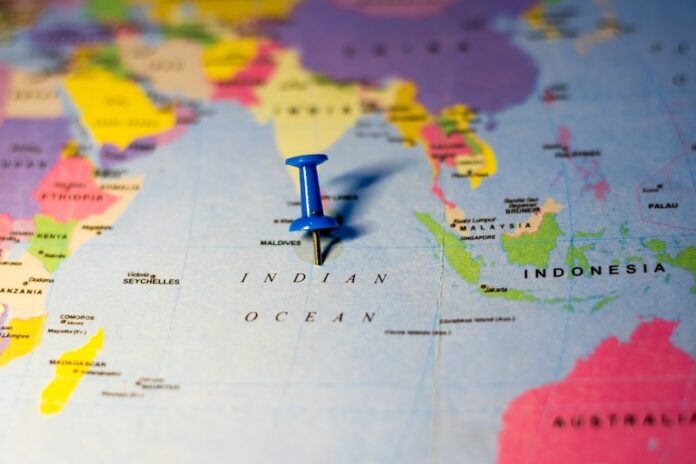The concept of the Mandala dates back to a Tamil inscription documenting a settlement and commercial system in a South Indian communal compound before the Chola’s raid in 1025 CE. The records mention a commercial system in Lobu Tua of Southern Aceh dated in 1088 CE (McKinnon 1994). Despite political turbulence, mercantile exchanges between the two regions continued, with many scholars attributing it to the Mandala of the Indian Ocean. Mandala, a Sanskrit word meaning a circle of space and time connecting through a circulation of being (Bose, 2006), governed the international relationship through the shared Muslim cultures across the Indian Ocean (Pradines and Topan, 2023). This international norm influenced networks, ports, commodities, agencies, political ecosystem, mobility, interactions, and a sense of belonging for the diverse groups involved such as South Indians, Arabs, Chinese, Jews, and Europeans.
Fernand Braudel also discussed the concept of mandala in his book, The Mediterranean and the Mediterranean World in the Age of Phillip II (1972), emphasizing spatial and temporal connections in economic and political circulatory processes (Acharya, 2019). The cycle of circulation patterns between empires contributed to a civilizational state where embedded norms and cultures engineered pluralism and unipolarity, forming the global order across the Indian Ocean. This multiplexity was influenced by the ‘open’ character of surrounding sovereignties, shaping a de-centered hegemony in the international politics of the 15th century.
South Indian merchants played a crucial role in the mercantile network, connecting Coromandel ports to various regions like Aceh, Malacca, Kedah, and beyond before returning to the Coromandel Ports (Nordin, 2005). These merchants, known for their skills in managing commodities and maintaining agencies, held positions of influence in the political structure, guiding mobility and interactions across the Indian Ocean.
Aside from their roles as shahbandar, advisers, and trade negotiators, South Indian merchants also served as skilled diplomats, interpreters, letter writers, and mediators in conflicts involving international trade (Bayly, 1989). They navigated the complex political landscape with language skills and geopolitical knowledge, establishing alliances that benefited both sides.
Historically, Islam served as a world system regulating power behavior in a complex social and political hierarchy, leading to imperial unification and establishing an order based on inter-civilizational political entities (Voll, 1994). Islamic culture and norms helped shape the oceanic maritime world order, fostering international engagement between Indonesia and South India without the constraints of a race or religion-based system.
The Indian Ocean Mandala, multi-skill agencies, and shared identities played a vital role in sustaining international relations between Indonesia and South India, fostering an environment of inclusivity and cooperation beyond religious or racial boundaries.
References
Acharya, A. (2019). The Making of Global International Relations: Origins and Evolution of IR at its Centenary, UK: Cambridge University Press.
Bose, S. (2006), A Hundred Horizon: the Indian Ocean in the Age of Global Empire, London: Harvard University Press.
Bayly, S. (2003). Saint, Goddess, and Kings: Muslims and Christians in South Indian Society, 1700-1900. Cambridge University Press.
Hing, L. K. (2006). Aceh at the time of the 1824 Treaty. In Reid Anthony (Ed.), Verandah of Violence: The Background to the Aceh Problem (pp. 72-95). Singapore: Singapore University Press.
Pardesi. M.S. (2022). Decentering Hegemony and Open Orders: Fifteenth Century Melaka in a World of Orders, Global Studies Quarterly, Volume 2, Issue 4. Doi.org/10.1093/isagsq/ksac072
H. Nordin. (2005, December). Network of Malay Merchants and the Rise of Penang as a Regional Trading Centre. Southeast Asian Studies, 43(3), 216-237.
V. Obert (1994). Islam as Special World System, Journal of World History, Vol 5, No 2. pp. 213-226.
Pradines. S, Topan. F (2023). Muslim Cultures of the Indian Ocean: Diversity and Pluralism Past and Present, UK: Edinburgh University Press.
Reid, A. (2008). Merchant Prince and Magic Mediators. Indonesian and The Malay World, 36(105), 253-267.




